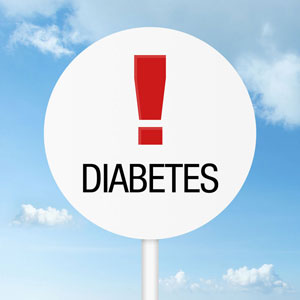Diabetes affects half of Americans
A recent study published in the Journal of the American Medical Association revealed that 12-14 percent of U.S. adults had diagnosed diabetes and almost 40 percent have prediabetes.
What is prediabetes? If you are diagnosed with prediabetes, it means that your blood sugar level is higher than it should be and you are at risk for getting diabetes. If you are overweight, aren’t physically active and have a family history of diabetes, you are more likely to get prediabetes.
The key to treating prediabetes and preventing diabetes is getting your blood sugar levels back to a normal range. You can do this by making some lifestyle changes.
- Watch your weight. If you are overweight, losing just a small amount of weight may help. Reducing fat around your waist is particularly important.
- Make healthy food choices.
- Limit how much fat you eat and try to eat foods that are high in fiber.
- Try to eat about the same amount of carbohydrate at each meal. This helps keep your blood sugar steady. Carbohydrate affects blood sugar more than other nutrients. It is found in sugar and sweets, grains, fruit, starchy vegetables, milk and yogurt.
- Talk to your doctor, a diabetes educator or a dietitian about an eating plan that will work for you. There are many ways to manage how much and when you eat.
- Be active. You can do moderate activity, vigorous activity, or both. Bit by bit, increase the amount you do every day. You may want to swim, bike or do other activities. Walking is an easy way to get exercise.
The American Diabetes Association recommends being tested for prediabetes if you are:
- age 45 or older.
- younger than 45 and overweight, have high blood pressure, high cholesterol, a family history of type 2 diabetes or other risk factors.
Many people who are diagnosed with Type 2 diabetes have no symptoms or the symptoms are so mild they go unnoticed.
Symptoms of diabetes
- Feeling very thirsty.
- Urinating more often than usual.
- Feeling very hungry.
- Having blurred vision.
- Losing weight without trying.
